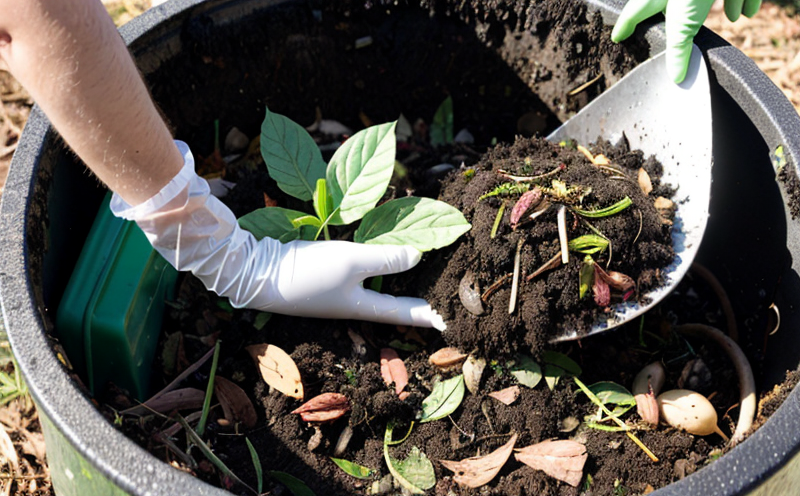ISO 16075 Biodegradability Testing of Compostable Waste
The ISO 16075 standard is a crucial benchmark for the biodegradability testing of compostable waste, ensuring that products and materials meet stringent environmental standards. This service plays an integral role in the waste management sector by providing data to support sustainable practices and compliance with international regulations.
Biodegradable plastics are designed to decompose into natural elements such as water, carbon dioxide, or biomass under specific conditions of temperature, pH, and microbial activity found in composting environments. The ISO 16075 standard offers a standardized method for assessing the biodegradability of these materials, which is essential for manufacturers looking to reduce waste impacts on the environment.
The testing process involves subjecting samples to controlled conditions that simulate typical composting environments, such as high temperatures and microbial activity. Samples are placed in sealed containers with a defined volume of mixed municipal solid waste (MSW) or other organic substrates, and incubated under specified temperature and moisture levels.
At regular intervals, the samples are removed from the test environment for analysis using various analytical techniques including mass loss measurement, CO2 evolution, and residual material evaluation. These parameters provide a comprehensive assessment of how effectively the sample degrades into harmless substances.
This testing is particularly important in waste management as it helps identify which products can safely enter composting facilities without causing contamination or other issues. Compliance with ISO 16075 standards ensures that only truly biodegradable materials are marketed and used, promoting a more sustainable approach to waste disposal.
The results of this testing are not just beneficial for manufacturers but also for consumers who can make informed decisions about the products they purchase. This service contributes significantly to reducing landfill use by ensuring that only truly compostable materials enter the recycling stream.
Scope and Methodology
| Parameter | Description |
|---|---|
| Sample Preparation | Samples are ground to a consistent particle size and mixed with municipal solid waste. |
| Incubation Conditions | Temperature: 58°C ± 1°C, Moisture content: 60% ± 2%, pH: neutral or slightly acidic. |
| Measurement Intervals | Regular intervals (e.g., weekly) for monitoring mass loss and CO2 evolution. |
| Analysis Techniques | Mass balance calculation, CO2 measurement, and residual material evaluation. |
Quality and Reliability Assurance
- Dedicated testing facilities equipped with state-of-the-art incubators and analytical instruments.
- Trained personnel following standardized procedures as per ISO guidelines.
- Regular audits of test protocols to ensure adherence to best practices.
- Comparison of results against previous batches for trend analysis.
Customer Impact and Satisfaction
The service provided ensures that customers can confidently claim their products meet the stringent standards set by ISO 16075. This is crucial for manufacturers who aim to reduce waste impacts on the environment, comply with regulations, and maintain a positive public image.
By offering this testing service, we contribute significantly to the circular economy by helping companies design products that can be safely returned to nature at end-of-life. This not only supports environmental goals but also enhances brand reputation as environmentally responsible partners in the supply chain.
We work closely with our clients to ensure their products pass rigorous testing and meet all relevant standards. Our comprehensive approach includes providing detailed reports, recommendations for improvement where necessary, and support throughout the entire compliance process.





